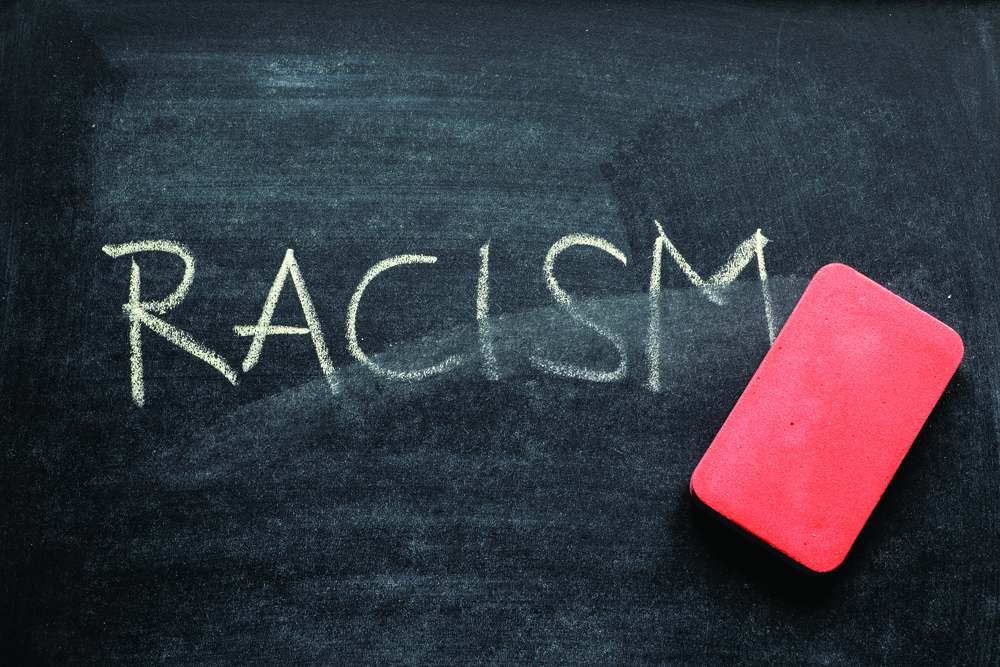Adelphi's “Facing Racism" discussion sessions likely will be back for a third year in Fall 2019.

Adelphi’s “Facing Racism” discussion sessions likely will be back for a third year in Fall 2019.
Looking back on the past two years of these multiweek sessions, Perry Greene, Ph.D., vice president for diversity and inclusion, said, “The participants seemed to really appreciate this effort to unpack racism in America. Plans are being considered in hopes of offering the sessions again this fall.”
During each of the past two years, “Facing Racism” has run for four weeks in September, with many wishing it to be extended beyond four weeks, “so we might in fact extend the series into October,” Dr. Greene added. Anywhere from 10 to 15 people have attended each of the sessions, with several people attending more than one session.
At last fall’s “Facing Racism” dialogue in the Ruth S. Harley University Center, the attendees introduced themselves—students, professors, faculty and members of the community. On a golden screen in big bright letters were the words “Facing Racism.”
Opening the discussion, Dr. Greene said, “I ask you all to leave your role at the door. No voice in this room is better or bigger than anyone else’s.”
Dr. Greene recalled that the Office of Diversity and Inclusion launched this series as “Facing Racism: Conversations on Race” in 2017 in response to the white nationalist hate march in Charlottesville, Virginia. “I tried to find ways to unite and calm the Adelphi community,” he said. This was one way.
Adelphi decided to hold these sessions again each Friday last September. The goal, once again, he said, was to promote understanding by discussing topics ranging from racism in the media, to the fear of talking about race, to Colin Kaepernick and other players kneeling during the national anthem at National Football League games.
“Sometimes the best way to unpack an issue is to listen to someone’s story,” Dr. Greene said.
A faculty member began the session by sharing a memory of reading a story in class that painted a black person as unintelligent. Holding back tears, she spoke of her students laughing at this character. “I wondered if that was how they saw me,” she said.
The dialogues dove into issues such as prison. Dr. Greene asked the audience what percentage of the prison population is black. One person said around 75 percent and another said 60 percent. A community member guessed 30 percent, which was the closest answer. According to the Federal Bureau of Prisons, 38.1 percent of inmates are black.
“How many of you were surprised by that answer?” Dr. Greene asked. More than half the room raised their hands. This sparked a conversation about why people assumed there are more people of color in jail than there actually are. People spoke of police brutality and officers being called on black people while doing common activities, such as driving, napping, swimming, campaigning, barbecuing or sitting while black.
At the end of the session, Dr. Greene asked how everyone could take what was learned in the series to face racism. A faculty member mentioned that although the people who should be having these conversations never come to these events, everyone can take what they learned and inform others in the community.
“Mindful dialogue, even with those with whom we disagree, is strategy for reaching common ground on sensitive issues,” Dr. Greene said.
For further information, please contact:
Todd Wilson
Strategic Communications Director
p – 516.237.8634
e – twilson@adelphi.edu